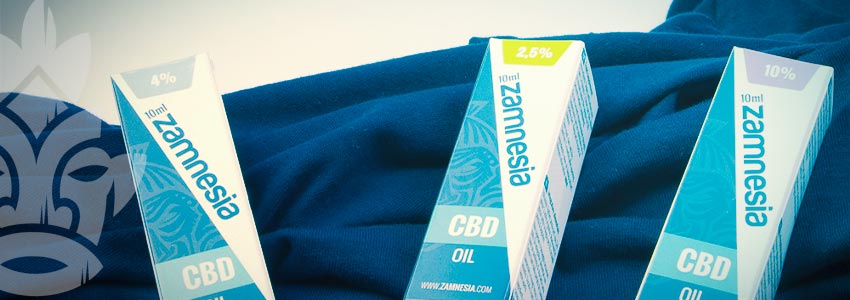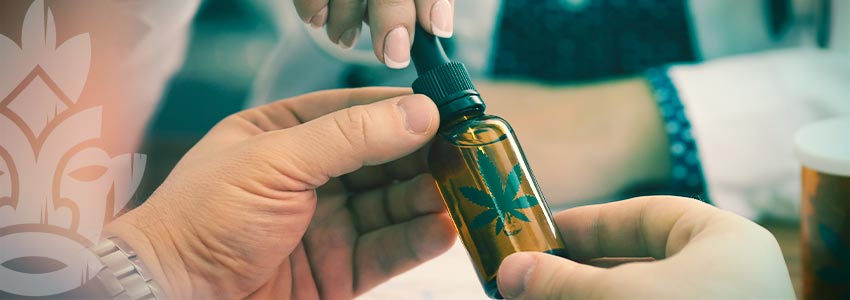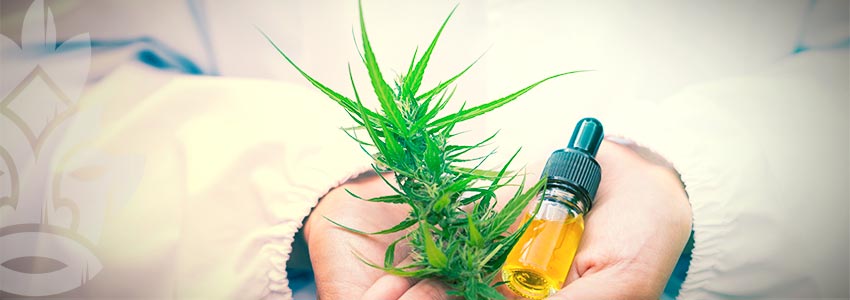Don't have an account?
Register NowYou have to add to cart at least 5 bottles or any program to make checkout.
- BlogHow To Talk To Your Doctor About Taking CBD Oil
How To Talk To Your Doctor About Taking CBD Oil
Published: April 30th, 2020
Categories:
Medical Cannabis
So, you've heard a lot about the benefits of CBD oil. Maybe you have friends who swear by it, but still aren't sure if CBD is right for you. If that sounds familiar, consider talking to your doctor before taking the plunge. Getting a physician's advice is a good first step, especially if you take medications or have pre-existing health issues.
Overwhelmed at the prospect? Don't stress. Here are some useful things to consider before you make an appointment.
APPROACHING YOUR DOCTOR ABOUT CBD OIL
It may seem daunting to talk to your doctor about CBD oil. Many people understandably experience anxiety during doctor's appointments. And, unfortunately, the stigma around cannabis products is an additional barrier. Try not to let it discourage you. Remember that your doctor should have your best interests at heart.
Your family doctor knows your medical history and has a relationship with you. They'll be in the best position to give you the critical advice you're looking for.
Don't forget, Zativo is also here to help. We've put together a comprehensive checklist so you can be prepared to talk to your doctor about CBD.
WHY DO YOU WANT TO TAKE CBD OIL?
Going into your appointment with a clear goal will help you get the best advice. Consider why you're interested in CBD oil.
RESEARCH CBD OIL BEFORE YOUR DOCTOR'S APPOINTMENT
The best way to ensure you'll be taken seriously by your doctor is to do your own research. Since CBD is still breaking into the mainstream, your doctor might have their own questions. A little preparation can help them so they can help you!
Don't worry, you don't need a PhD to do effective research. There's a lot of information already out there. Below are a few key things to look into before your appointment.
SUPPORTING STUDIES
Your doctor will take you more seriously if you back up your interest in CBD with solid scientific studies. Mention the World Health Organisation (WHO) report on CBD. It explicitly states that CBD has a good safety profile.
Another research tip? Avoid sites like Wikipedia or WebMD. Go straight to the source instead. It's as easy as C-B-D to filter your results using Google Scholar. Your doctor will appreciate that you're being smart about your health, and you'll help them zero in on the info they need.
FIND A REPUTABLE BRAND

Finding a good brand is also key. Not only does it give you somewhere specific to direct your doctor's attention, it helps ensure you get the best results from your CBD trial. So, what makes a good CBD oil?
• Origin of the hemp used: Look for CBD oil made from organic European or US hemp.
• Cannabinoid profile: The amount of CBD a product contains should be clearly labelled in percentage (%) or milligrams (mg), allowing you to gauge the overall strength of the product.
• Extraction method used: CO₂ extraction is the method of choice for industry leaders like Cibdol and MediHemp.
• Is it full-spectrum or an isolate? Full-spectrum oils, which preserve more compounds from the original plant, are often praised for their ability to generate the entourage effect. While it's ultimately a matter of preference, full-spectrum oils could provide additional benefits over isolates.
For more details on any of the above points, check out this ultimate guide to buying CBD oil. As with any product, don't forget to read the reviews!
WHAT QUESTIONS SHOULD I ASK MY DOCTOR ABOUT CBD OIL?

Bring a list of questions to your appointment. Doctors have a tendency to rush, and you don't want to forget anything. Writing things down can help. Here are a couple for the top of your list.
IS YOUR DOCTOR FAMILIAR WITH CBD OIL?
Some doctors are old-school and need more hand-holding. Others are already knee-deep in the latest cutting-edge research. Your doctor may already be familiar with CBD, especially if they've prescribed medical cannabis in the past. If they're not, that's your cue to bring them up to speed on the basics (remember that kick-ass research you did?).
POSSIBLE DRUG INTERACTIONS?
There's research to suggest that CBD can alter how your body metabolises certain medications. To be safe, you should always ask your doctor about possible drug interactions.
IS THERE A RECOMMENDED DOSE OR CONCENTRATION BASED ON MEDICAL HISTORY?
Whatever your interest in trying CBD oil, there's unlikely to be a standard plan. Your doctor will probably play it safe, starting you on a low dose and tracking your progress. That said, it's still better to ask than rely on online advice.
The information found on most websites is general. Advice from someone who knows your medical history is more likely to be tailored to you. Bringing up dosage also shows your doctor that you're responsible and trust their expertise.
WHAT TO EXPECT AFTER TALKING TO YOUR DOCTOR ABOUT CBD OIL

So, you did it! You made a plan, did your research, and brought up CBD oil like a boss at your doctor's appointment. What's next?
MONITOR AND RECORD YOUR EXPERIENCE
As with any new regimen, tracking your experience will give you a clearer picture of how CBD is working for you. Keep notes about when and how you administer the oil. Consider your eating habits and anything else you might be taking.
Bring your notes to your next appointment. These can help your doctor establish patterns and adjust your regimen as needed.
IF NEEDED, ASK FOR A SECOND OPINION
Were you unsatisfied with your doctor's response? Was your doctor unable to answer your questions? Don't be afraid to seek out a second opinion.
Ask your doctor if they can recommend someone more knowledgeable. Consider looking for a physician who has experience prescribing medical cannabis. They're more likely to be informed about CBD.
DON'T BE AFRAID TO ADVOCATE FOR YOUR OWN HEALTH
Remember, you'll always be an expert on your own body. You deserve to be taken seriously and have your questions answered. If you're particularly nervous going about your appointment, consider bringing a close friend or family member. They can provide an added layer of support and ensure your doctor doesn't brush you off.
Finally, give yourself props! By raising the issue of CBD oil with a trusted medical professional, you're contributing to an important culture shift. The more patients out there spreading the word about CBD, the more open-minded and informed the community will become.






